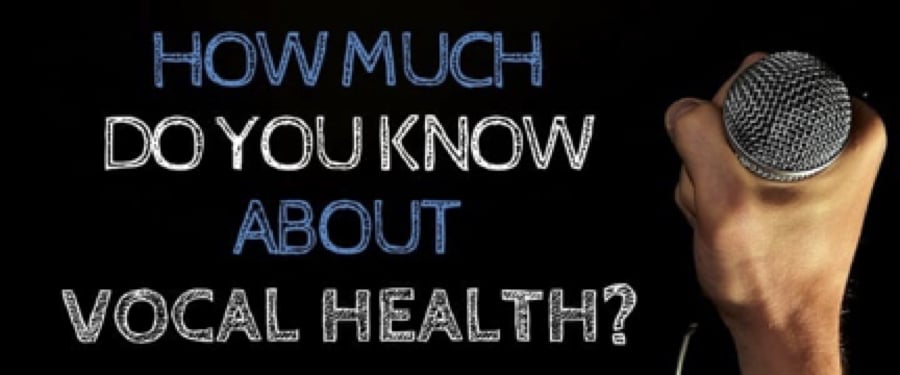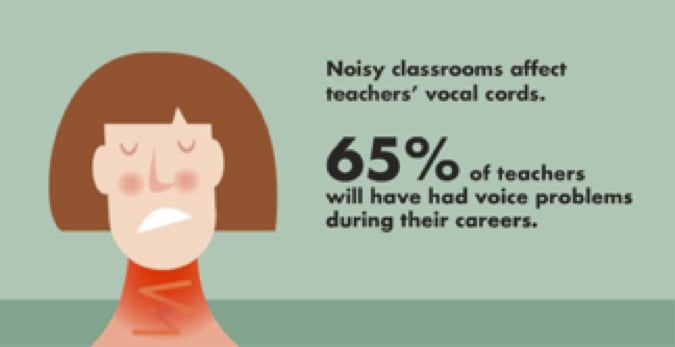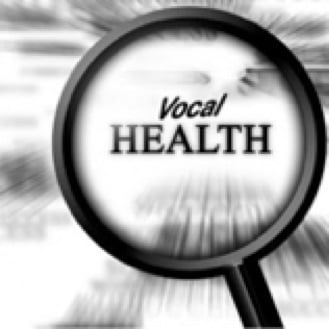LET’S TALK ABOUT VOCAL HEALTH FOR SINGERS!
Vocal health for singers. What’s something that we are likely to use and perhaps overuse or even misuse everyday? Can you think of something? Well I’ll go ahead and tell you anyway because this blog is going to be allll about it!
It’s your VOICE!
Yeap! I for one can put my hand up and honestly say that there are some days I am over using it and I know I can take better care of it. Wait a second, I have a question for you – Have you ever even THOUGHT to take care of your voice? Is that even a thing? YES, it is! It’s called Vocal Health.

Hello everybody and welcome to this week’s Epic Blog! I’m happy to see you’ve found your way here and I hope you enjoy the information I’m about to share on the voice and ways to care for your voice and keep it healthy and long lasting.
Going back to what I just mentioned earlier on the possibilities of overusing your voice … There are many people out there i.e children, teenagers, adults and elders who come from different walks and stages of life and of course carry out different daily professions and responsibilities. Teachers conducting lessons, tutorials, lectures, or coaches coaching a class or yelling passionately from the sidelines, doctors and nurses seeing back to back patients all day long, lawyers, sales representatives, performers, singers, actors, voice actors portraying different characters everyday are just a few examples of professions that require a lot of vocal use. Let’s not forget about toddlers or children who tend to shout, or have screaming outbursts and cry a lot which can cause a lot of vocal strain, damage and overuse/misuse.



Come to think of it, there are many things we ALL do on a daily basis that can cause vocal strain and perhaps never realised. Such as whispering, talking or laughing loudly and heavily from the throat, shouting, yelling or screaming a lot and even crying …. Even coughing or clearing the throat too often… these are definitely some of the ways we can cause vocal fatigue, hoarseness and harm.
For instance, take me for example, I am a vocal teacher and conduct lessons everyday throughout the working week and my job requires a lot of talking to explain, demonstrating, singing and giving vocal guidance. Not forgetting to mention that I tend to apply a lot of charisma and high energy to my voice to help my students feel at ease and comfortable in their lessons. I love having a fun, happy and positive working environment for my students and I to have our lessons. I match my students’ energies and sometimes even add more energy to the way I use my voice and pitch to lift, entice and encourage my students. This in itself puts my voice under strain, so by the end of the day I do sometimes notice that my voice is tired and fatigued. Giving me warning signs that I need to ensure I practice Vocal Health.

What is Vocal Health?

Vocal health for singers?. Oh this is a goody, and you know what? This also falls under the general self care umbrella. Let’s not forget the voice is absolutely an instrument and this instrument is a part of your body. One that we can not see, but we can feel if we pay close attention.
So, what I’m getting at here is that if we look after ourselves well, we are also naturally and simultaneously looking after our voice too.
Vocal Health will enable us to use and sustain our voice in a healthy and supportive manner, while avoiding actions that can cause vocal strain and serious damage to the voice box. All the while practicing the importance of maintaining good habits to help you deliver a more successful vocal performance. Such as eating well, sleeping well, exercising, and keeping hydrated are essential in helping maintain good vocal health and practice.
However, here are SOME other ways to keep on top of your Vocal Health. So, if you know that you are about to embark on some seriously lengthy voice use, then it’s highly beneficial if you practice the following:
- Warming up AND cooling down. Yes, that’s right – warming down too!. Just like athletes needing to warm up for their high energy endurance performances, they also need to cool down to help regulate blood flow and recovery. Cooling the voice down after intense vocal use with some gentle ‘siren slides’ is definitely a good way to go! Just simple movements from notes 1 to 5 and back.
- Practice good breathing techniques! Supporting your breath with diaphragmatic breathing, also known as ‘belly breathing’. This is where the belly comes out when you draw in your breath. Instead of moving your upper chest and shoulders up and out when you inhale. Think of drawing the breath down to your belly button. *Have a look at the short video link I have attached below on diaphragmatic breathing. It’s a simple guide to learn or correct your breathing techniques.
- Keep up your fluids with water; plain water is best. Lots and lots of water! This helps keep the vocal folds (cords) moist to help with the actions of using your voice. (I will definitely be talking more about the vocal anatomy in the weeks to come, so there will be A LOT of information to come on that little engine in your throat!)
- Avoid alcohol and high caffeinated drinks, as this will dry up your throat!
- Avoid dairy products as this creates a mucous coating over the vocal cords creating a muffled sound and you’re then left with needing to clear the throat too often. Which leads me to my next point …
- Don’t clear the throat too often as this creates a “slamming” effect of the vocal cords hitting each other, rather than the vocal cords gently moving into natural, supported action. Swallow or drink water as your means to ‘clear the throat’.
- REST your voice (and rest your mind and body). Take Vocal Naps! Take a break from speaking, create intervals of no use of words or create an effort to speak fewer words if you must still speak.
- Avoid talking in loud environments. We all know how annoying it is to try and have a conversation with someone when you’re needing to speak over loud music or just when you’re in a loud environment in general. This causes heavy strain and tension on the voice.
- If you are sick or physically run down, your voice will be more susceptible to vocal strain and harm, so it is best to rest, rest and rest! Pushing on your voice when you are unwell can lead to voice loss and swelling of the vocal cords, and possibly leading to laryngitis.
- Practice ‘Humming’. By creating the sound of “Huuummmmm”. This will help generate the sound towards your upper lip, tingling your top palate and nose. This is to focus the sound forward and out, centering the sound more frontally, rather than too throaty. By doing this you’re enhancing your chances to speak or sing more comfortably and effortlessly.
- Lastly, listen and pay attention to yourself. Our bodies are always sending us warning signals and it is our job to try and pick up on them and do what is best to keep ourselves happy and healthy… and in our points today – Vocally Healthy!!
Here is the video link on ‘Diaphragmatic Breathing’ …click away…

What are the warning signs to vocal strain and damage?
Here are some of the warning signs for the singers out there and of course for those on the general vocal use platform (everybody who uses their voice):
- Your voice has become raspy, husky, and hoarse.
- You tend to feel pain in the throat when you use your voice to speak; making it feel like an effort to talk.
- Having constant sensations of rawness, ache and strain in the throat.
- You’ve noticed you have lost your ability to hit higher notes in your upper register when singing.
- Your voice may be sitting in a lower position and it all of a sudden sounds much deeper, and you notice an overall change in voice tone and quality.
- Your voice breaks and struggles to keep consistency in pitch and tone.
- You have urgencies to constantly cough or clear the throat.
So it’s safe to say if you are experiencing some of these symptoms, it may be time to start practicing better vocal technique to improve on the way you use your vocal muscles. Just to add, as I mentioned earlier, I will be writing about the vocal anatomy in the upcoming blogs which will explain what the voice itself is made up of and how it functions and creates sound. (So keep an eye out)
Further serious repercussions of vocal damage can lead to vocal cord nodules, polyps and cysts. This too can definitely be caused from straining and overusing your voice. But I will touch further on these topics in the upcoming blogs in weeks to come! But in the meantime if you have any questions or queries about what I’ve touched on today, please do not hesitate to get in touch with us!
I really look forward to writing further on everything to do with the Voice and all its glory!! Our voice is such a powerful tool that perhaps we may even take it for granted sometimes.
Look after and take care of yourself and of course your voice everybody, as Vocal Health is a real thing! 🙂
Vocal health for singers
